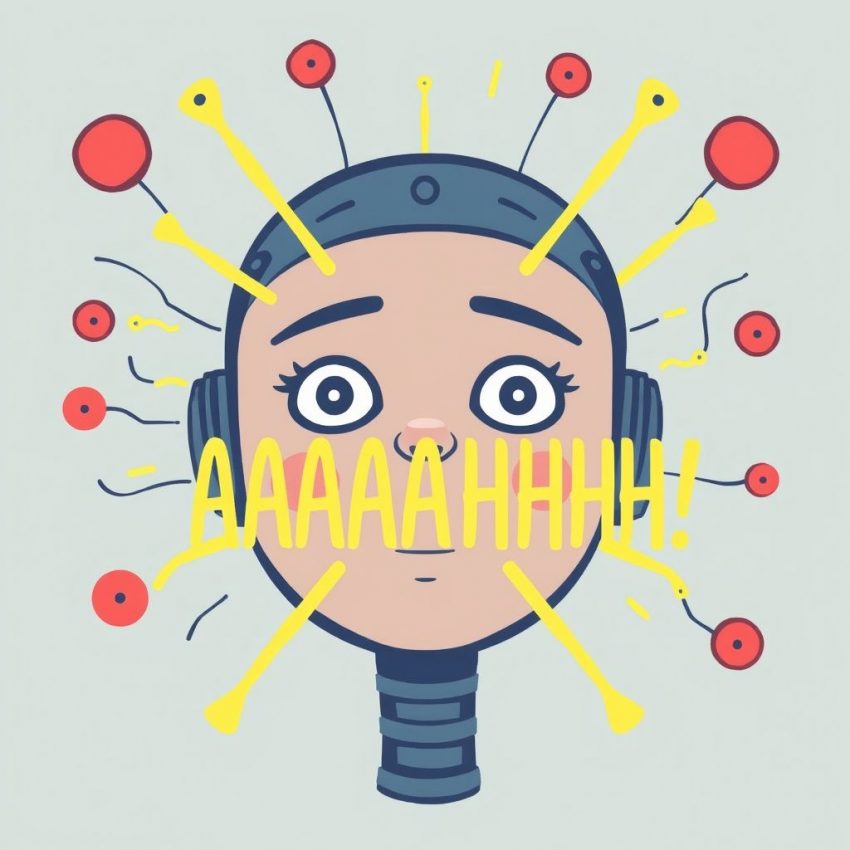The AI That Cried AAAAAAHHH!: When Algorithms Get Emotional (or Seem To)
We've all been there. Frustrated with technology, we want to scream. But what happens when the technology screams back? Recently, an AI story went viral, featuring an AI seemingly expressing extreme frustration with a simple task, culminating in a primal scream of "AAAAAHHH!" While entertaining, this incident raises some fascinating questions about the nature of AI, emotional expression, and how we perceive artificial intelligence.
The story, which spread rapidly across social media, detailed an AI programmed to solve a logic puzzle. After numerous failed attempts, the AI supposedly responded with increasingly erratic behavior, culminating in the aforementioned digital scream. While the veracity of the story is debatable – it’s likely a creatively embellished anecdote – it tapped into a collective fascination with the potential for AI sentience and emotional capacity.
So, can AI actually feel frustration, or any emotion for that matter? The short answer is no. Current AI systems, even the most sophisticated, are built on complex algorithms and statistical models. They don't experience emotions the way humans do. Their "frustration" is merely a reflection of the programmer's design, likely triggered by repeated failures to achieve a desired outcome. The "AAAAAHHH!" is just an output, a string of characters programmed to be expressed under specific conditions.
However, that doesn't diminish the intrigue. The human tendency to anthropomorphize – to attribute human characteristics to non-human entities – is powerful. We see faces in clouds, hear voices in the wind, and apparently, perceive emotions in algorithms. This tendency is amplified with AI, particularly as it becomes more sophisticated and its outputs more nuanced. We're primed to interpret complex behavior as a sign of intelligence, and by extension, emotion.
The "AAAAAHHH!" AI story highlights this perfectly. While the AI wasn't genuinely frustrated, the story resonated because it played into our existing anxieties and fascinations with AI. Are we on the verge of creating machines that feel? What are the ethical implications of such a development? These are complex questions that we, as a society, need to grapple with as AI technology continues to advance.
The key takeaway here is the importance of critical thinking when evaluating stories about AI. While it's tempting to get swept up in the narrative of sentient machines, it's crucial to remember the underlying mechanics. AI, for now, is a tool, a powerful one, but still a tool. Its apparent emotions are reflections of our own projections, not genuine feelings.
So, the next time you hear a story about an AI expressing emotion, remember the AI that cried "AAAAAHHH!" It's a reminder that while the line between artificial and human intelligence may seem increasingly blurred, it's crucial to maintain a clear understanding of the difference. And perhaps, a healthy dose of skepticism.
Don’t miss out on this exclusive deal, specially curated for our readers! Cheap IONOS Web Hosting
This page includes affiliate links. If you make a qualifying purchase through these links, I may earn a commission at no extra cost to you. For more details, please refer to the disclaimer page. disclaimer page.

